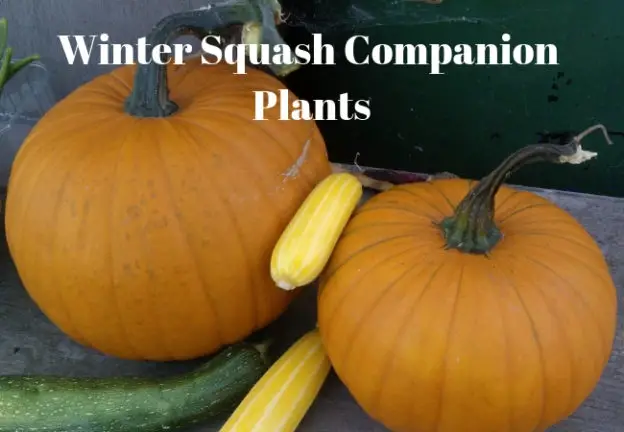All plants benefit from growing in companion with others, and winter squash are no exception. Below are the best winter squash companion plants I have found to increase yield, health and vigour of your plants.
Although they are called winter squash, this relates to their storage ability and not to when they should be grown. Winter squash are grown at the same time as summer squash ( zucchini, patty pans, courgettes etc…) but can be saved to consume during the winter. Whereas summer squash will not store because their skin does not harden enough to keep the inside fresh.
So winter squash including Pumpkins, Butter nut, Turks turban, Crown prince, and basically any squash that’s not a summer squash should be treated the same way. They all have a relatively short growing period and so need a lot of nutrients and water. They also rely on insects to pollinate their fruit.
The key to good vegetable production is soil preparation and winter squashes are no exception. Work in plenty of well rotted manure or compost before planting winter squash. Once plants start to produce female flowers feed weekly with a good fertiliser like home made comfrey tea.
Winter Squash Companion Plants
All squash benefit from the same companions whether they be summer or winter squash. So the list below applies to summer as well as winter squash. They include:-
Borage and Winter Squash
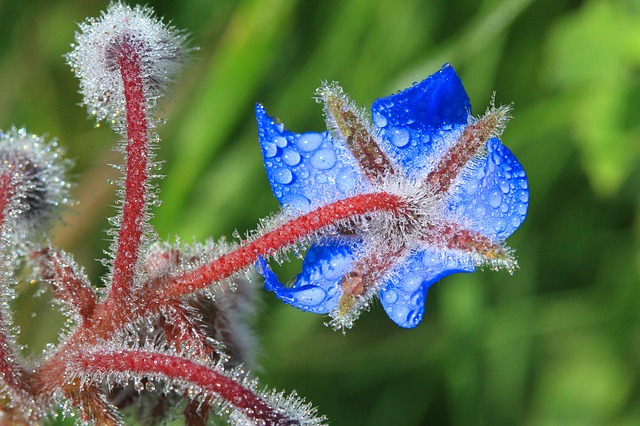
I am a great fan of this amazing herb, it is a deep rooted plant, known as a dynamic accumulator because it’s roots reach nutrients too deep for over plants to reach. It’s star shaped blue flowers attract many beneficial pollinators including bees, butterflies and hover flies.
As a result of the number of bees and butterflies attracted to the borage flowers many other damaging insects like cucumber beetles and in this case more importantly squash beetles are deterred from getting too close. Probably due to the amount of traffic and movement of the pollinators the pests keep away fearing predator attack.
Whilst on the subject of borage, once the season ends and the borage dies back hoe it into the soil or add it to the compost heap to add extra otherwise untapped nutrients.
Marigold and Winter Squash
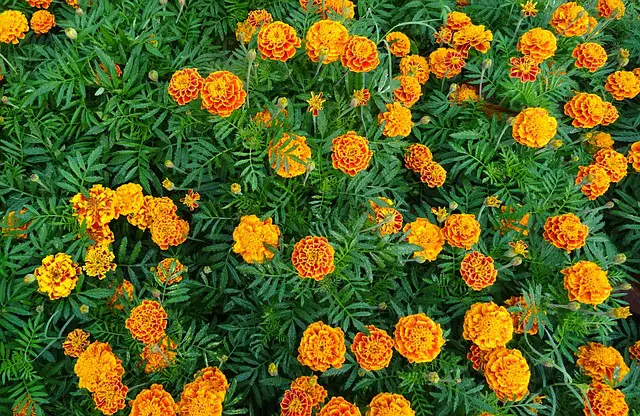
An incredibly strong smelling plant, the marigold repels squash beetles and harmful nematodes that attack the roots of squashes and the first sign you see is too late. So grow marigolds close to winter squashes but be warned, they attract slugs and snails so check them regularly and don’t grow them too close to your squash plants.
Nasturtium and Winter Squash
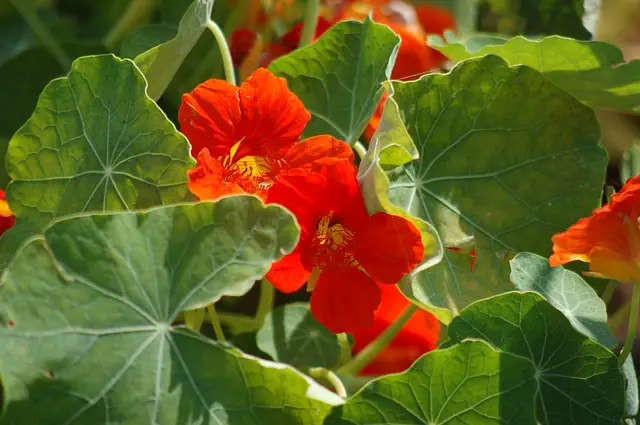
Another plant known to repel squash beetles, nasturtiums should be grown in companion with winter squashes. Unfortunately they attract aphids, so grow at the edge of beds and reap the benefits of this beautiful little flower. It’s not all bad news though, as nasturtiums also attract many beneficial pollinators to your plot as well.
Oregano and Winter Squash
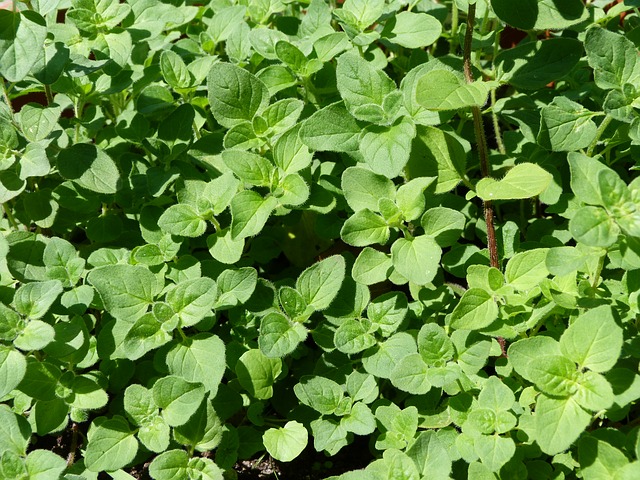
An aromatic herb, oregano attracts beneficial insects like lace wings and hover flies that feast on aphids to your plot. Due to it’s strong aroma oregano disguises your winter squashes from predatory insects. Oregano is said to improve the health of every plant it is in companion with, so it is well worth sowing some oregano seed and including it in your growing plan.
Beans and Winter Squash
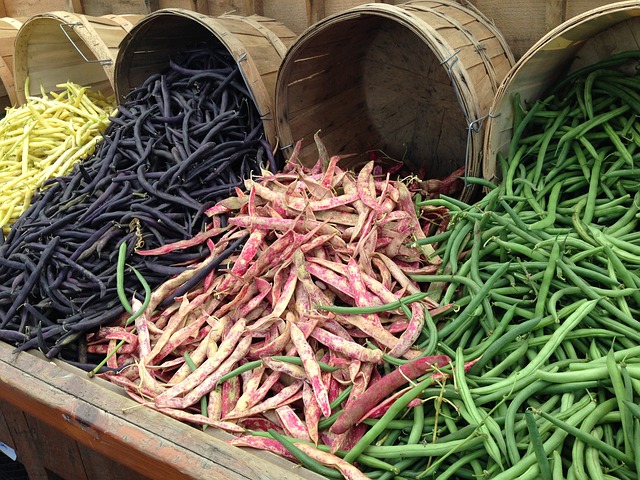
By fixing nitrogen through the air, all members of the legume family will be beneficial growing in companion with your winter squashes. They will not be competing with the squash for nitrogen allowing your greedy squashes to uptake as much nitrogen as they need. I like to grow climbing varieties to save space and maximise my growing area.
Peas and Winter Squash
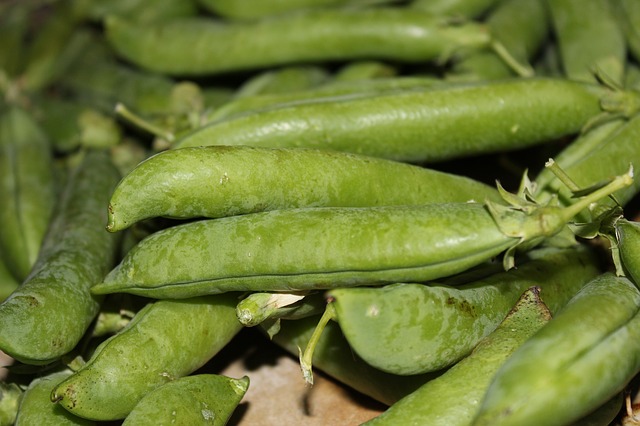
As members of the legume family peas, like beans don’t take nitrogen from the soil and therefore improve the health of your winter squashes. This needs to be considered if you are planning to add nutrients during the growing season. You will probably not need to add nitrogen to the soil.
Too much nitrogen will cause an excessive amount of leaves to be produced by your plants. While the plant is busy producing leaves, it is not producing flowers and ultimately, fruit. Also too much nitrogen will stop root production, so if you add nitrogen unnecessarily it will not only affect your squash crop, but could cause your plant to die.
Radish and Winter Squash
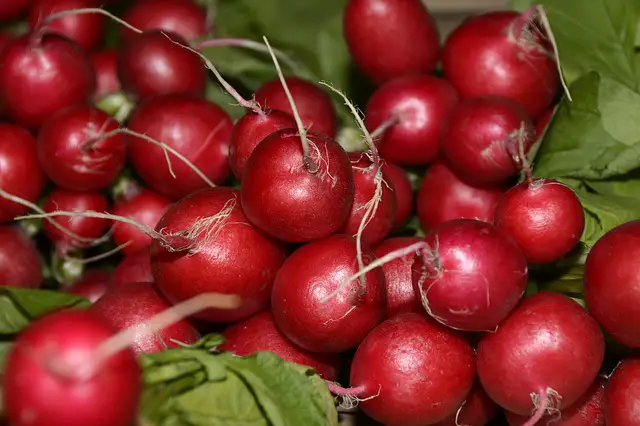
These small, tasty vegetables are probably the easiest growing crop, from seed to maturity in about 6 weeks. They are also attractive to the flea beetle, which shows as minute holes in the leaves of the plants. More importantly they repel squash beetles so are a very worthwhile companion for winter squashes.
Radishes prefer cooler conditions for growth so the large, spreading leaves of winter squash plants offer the ideal shade for radishes to grow. Resow every month for a constant source of protection and a constant supply of radishes.
Companion Planting Winter Squash
Other plants that can be grown in companion with winter squash are listed below. These do not provide any particular benefit but will benefit from the company.
Zucchini (courgette) and Winter Squash
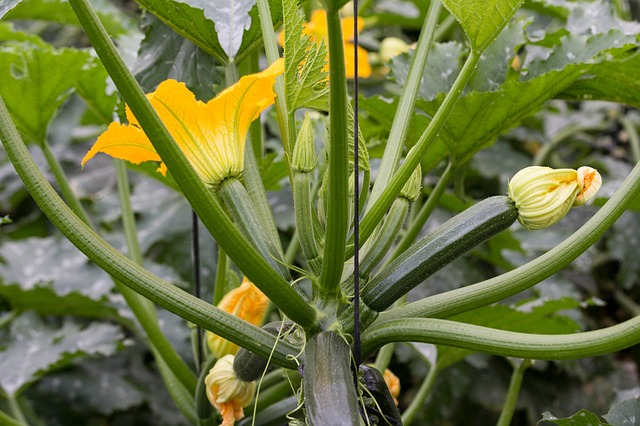
Needing the same growing conditions as winter squashes, zucchini makes an excellent companion to grow with all of the above. The only exception to this is if you wish to save seeds as you will not be able to control cross pollination. As zucchini are quite compact growing I like to alternate between the larger, more sprawling winter squash.
Sweet corn and Winter Squash
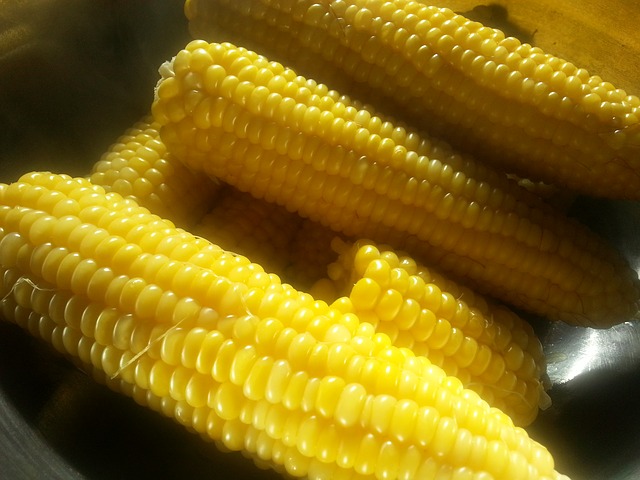
Shallow rooted, tall growing sweet corn benefit from the weed control from their larger leaved winter squash companions. Along with beans these 3 were the original 3 sisters grown by the indigenous peoples of the Americas. Providing 3 crops from a small area, the height, vine and sprawl from these 3 plants has been a productive companion grouping for thousands of years.
Cucumbers and Winter Squash
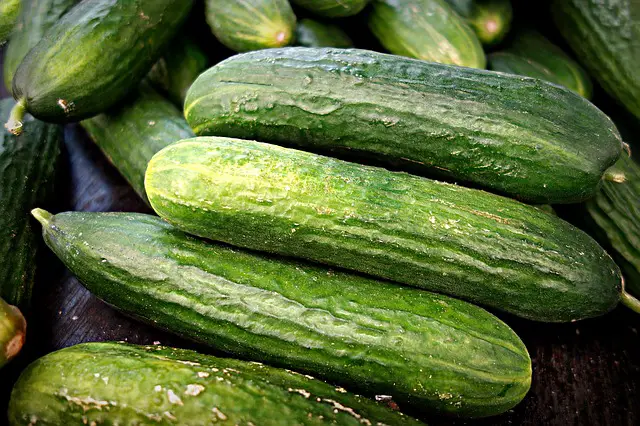
Benefiting from the same growing conditions and suffering from the same pests, cucumbers can be grown up supports to tower above the winter squash plants. Saving space and water/nutrients.
What Not To Plant With Winter Squash
Don’t Grow Potatoes And Winter Squash Together
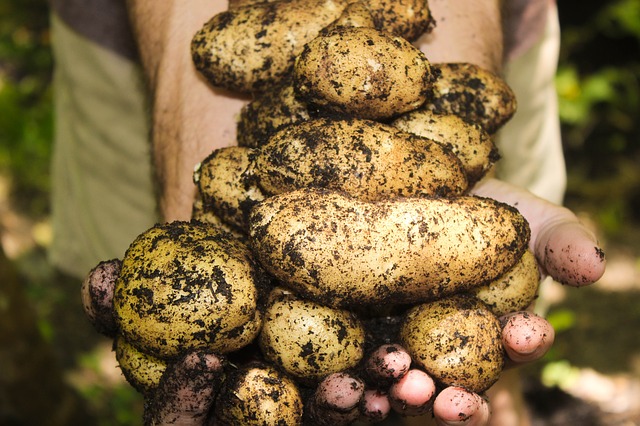
Due to their demand for nutrients and water, potatoes should not be grown with winter squash. It would also prove difficult to harvest potatoes without damaging the vines from the winter squash plants.

